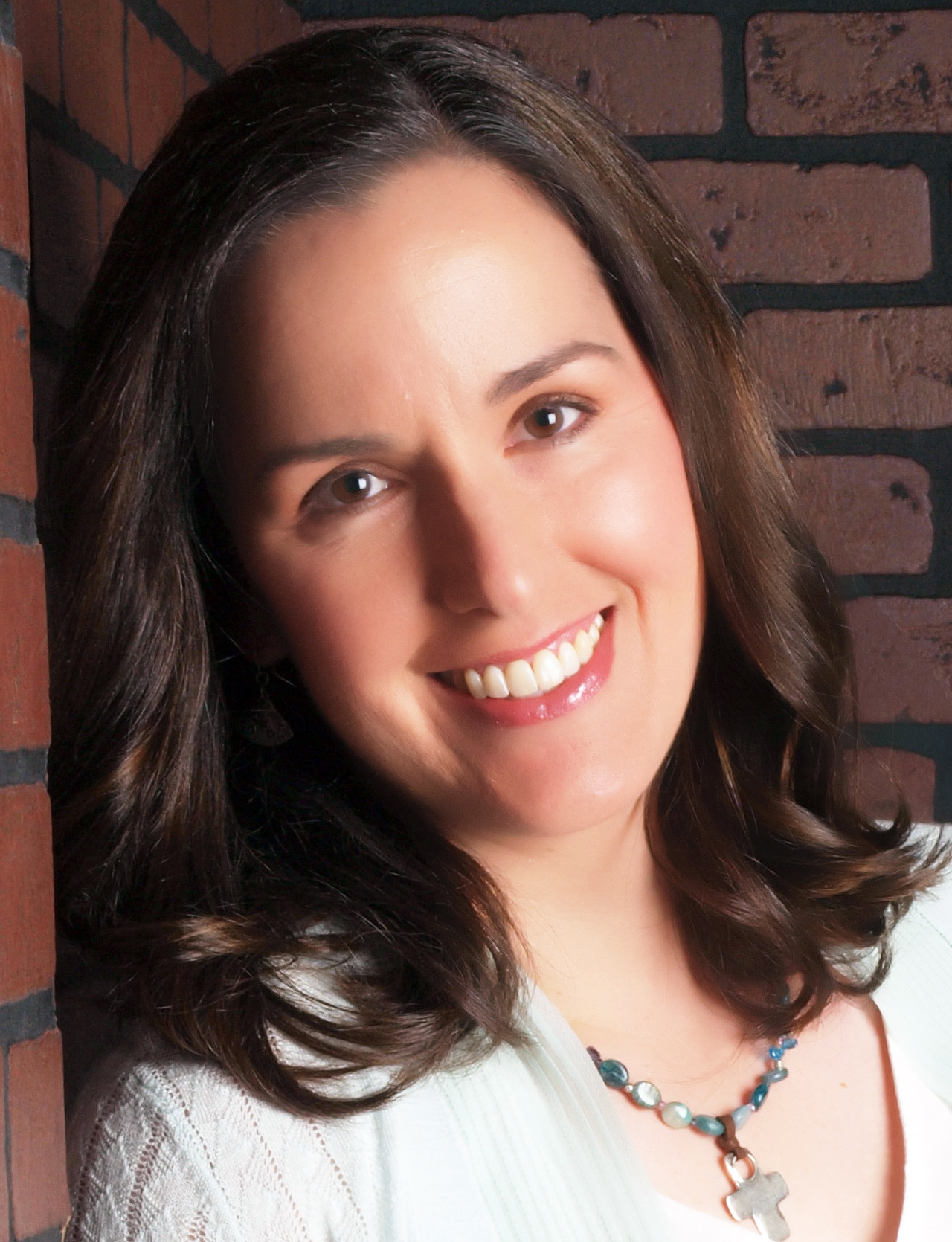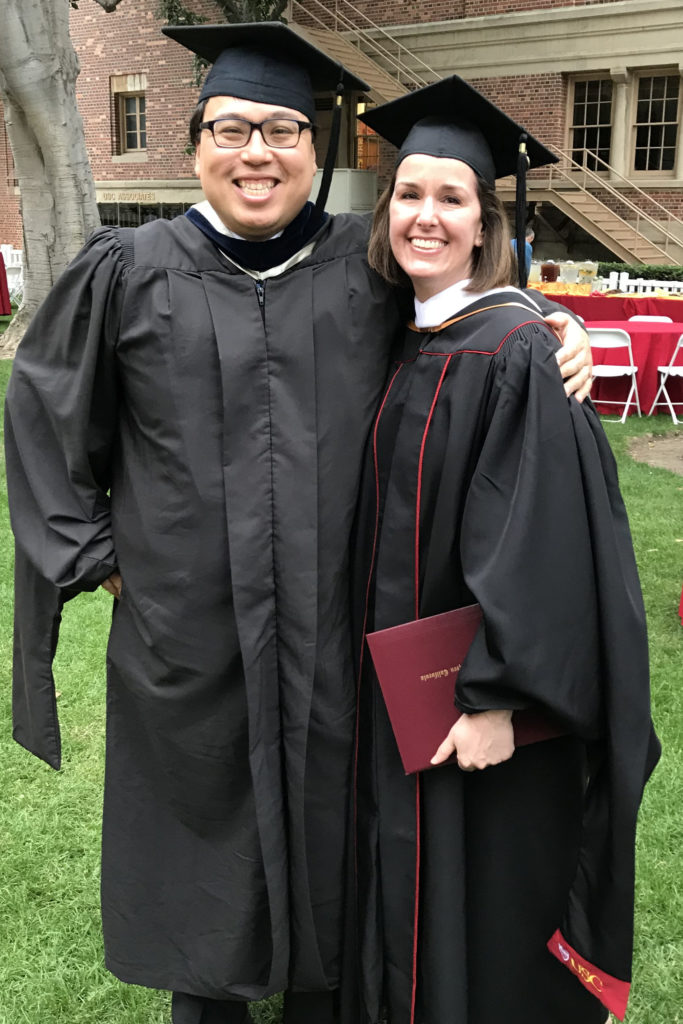
After years of working in marketing and advertising agencies, Lisa Frazier found herself evaluating the next step in her career. After assessing what she really liked about her job, and what she didn’t, she decided to take a leap of faith, and switch to a career in human resources. She turned to USC’s MSHRM to help make this transition, which she considered her “best option for successfully transitioning to a new career.”
Today, Frazier serves as a Senior Human Capital Consultant with the National Institutes of Health in Washington D.C. She credits her professors with helping her leverage her past experience to help transition into her current work as a HR consultant.
Below, Lisa Frazier discusses how her Master of Science in Human Resources and past experience in an agency setting helped prepare her for her current role as a Senior Human Capital Consultant.
Tell us a little about your career background and how you decided to pursue your MSHRM.
I come from an agency background – both traditional advertising agencies and interactive marketing agencies. I was responsible for representing the interests of the clients to the agency while simultaneously promoting the agency’s ideas to the clients. It’s a volatile industry, and very fluid. I had the benefit of working directly with Fortune 500 clients, but I was constantly transitioned from account to account as contracts were won and lost. I moved to four states in six years and had seven different bosses during that time. This is common and just the nature of that industry.
At my last agency, I knew I would be leaving imminently, but the thought of getting another job in another agency turned my stomach. I wrote up lists of all the things l liked doing for my job and all the things I wanted to avoid doing. Then I researched careers that would be the best match, and Human Resources won. I believed (and still do) that a graduate degree would give me credibility and be my best option for successfully transitioning to a new career.

How has your MSHRM helped you switch careers?
I realize now that I was naïve to think I had enough related experience and transferable skills to easily transition into HR. I got interviews but always lost the job to experienced HR professionals. It was the professors at Bovard College who encouraged me to pursue consulting, which I hadn’t considered. In fact, it was one of the professors, George Ho, who brought me into his company, which is the job I currently have (and love). The MSHRM helped me identify the areas of HR that I enjoyed as well as the areas where I wasn’t well suited, and the other students helped me understand how the theory being taught in the program might translate into actual experience.
What is a Human Capital Consultant and how does your degree inform your work today?
A Human Capital Consultant is a subject matter expert in human resources. I work on the Change Management team for a consulting firm instead of the traditional HR department in a company. My primary responsibility is facilitating change across 28 Institutes, Centers, and Offices (ICOs) at the National Institutes of Health (NIH). Each has a unique focus (e.g., cancer, infectious diseases, addiction) and each has a unique culture. My role is to encourage change and adoption of HR software applications that generate analytics and support customized reporting. There is heavy emphasis on learning and development.
Most people hate change. It’s inconvenient and can be overwhelming. I take that into consideration when developing demos and conducting training so that everything is presented with a “here’s what’s in it for you” perspective, which will vary based on the audience. After all, the benefits are different for an analyst versus a manager versus an executive. I have found that when you meet people where they are, you can often turn the naysayers into advocates.
The MSHRM allowed me to change my area of expertise from interactive marketing to change management. In addition, the degree directly informs my work in Change Management and Learning and Development. I’ve also noticed more subtle influences like consciously incorporating diversity and inclusion.
What has been the most rewarding work for you in your HR Career?
It’s rewarding for me to be in a position that directly impacts people’s ability to be successful as they usher in change. Also, I’m no longer enticing people to do things that aren’t good for them like drinking more fizzy sugar water, so I’m sleeping a lot better at night – literally and figuratively. I miss having a frozen margarita machine in the office, but since that is the only thing I miss, I know I made the right choice.
What excites you about the future of HR?
Products and services can be copied, but true competitive advantage is found in a company’s human capital. The things that foster the most effective use of that capital can’t be easily replicated. What excites me is the evolving strategy of how to best leverage human capital. (Spoiler alert: it’s not the dystopian work cultures I’ve seen at many companies.)
The last 18 months has been fascinating in terms of watching companies pivot, and I think we’ll see a new era in culture shift as companies identify how they can respond to changing employee expectations. I have the benefit of working at the National Institutes of Health and witnessing this while being part of promoting their new normal.
After graduating, you became an Ambassador for the MS in Human Resource Management program. Tell us about your experience as a former Ambassador.
It was full of surprises, and I loved it. One time, I was candid with a potential student about how hard it was for me to change careers. I was focused on obtaining a traditional HR role, but multiple professors encouraged me to leverage my experience by pursuing a consulting role. This was key to me being able to successfully switch careers.
Even though [my honesty around these challenges] might not have been what the prospective student wanted to hear, he sent the most gracious thank you note. It’s that kind of response that encouraged me to keep it real and share with others honest answers that weren’t available to me. I also encouraged them to talk to other Ambassadors, because I only represent one point of view.
What advice do you have for prospective students making the decision to pursue their MSHRM?
Three things:
- I had an MBA before I decided to get the MSHRM. Both have been beneficial, but they serve two very different purposes. I encourage prospects to really consider their objectives and if they are pursuing the MSHRM for the right reasons.
- Take advantage of office hours and those opportunities to speak with the professors outside of class. I built some great relationships with other students, but the one-on-one time I spent with the professors had a much more significant impact on my career and the choices I made.
- If it’s been some time since you have been in school, consider enrolling in the two-year track. You can always switch to the one-year track, but make sure you are setting yourself up for success.
This interview has been edited for length and clarity.
Learn more about the MS in Human Resource Management program.


